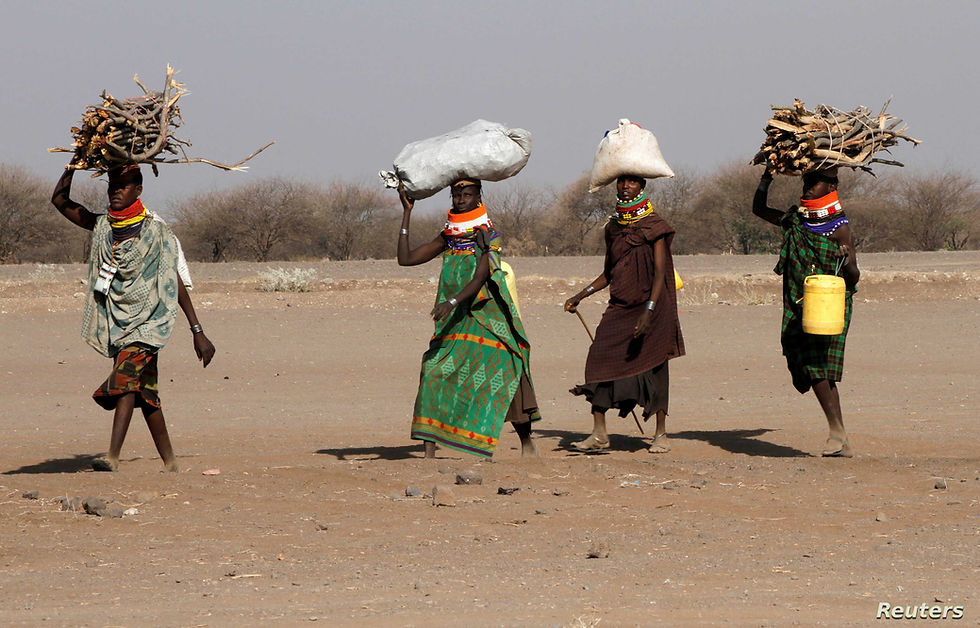Rights groups urge Kenya to reconsider closing refugee camps
- Spotlight East Africa
- May 5, 2021
- 2 min read

Women carry firewood on their heads outside the Kakuma refugee camp in Turkana county, northwest of Nairobi, Kenya, Feb. 1, 2018. (REUTERS)
By Victoria Amunga
Human rights groups in Kenya are urging authorities to reconsider plans to close two camps that are home to over 400,000 refugees and asylum-seekers.
Kenya has said it will close the Kakuma and Dadaab camps next year, but residents of the camps, who are mostly from Somalia and South Sudan, are hoping that further negotiations can keep the camps open.
Among them is Ribe Andro, who fled the Democratic Republic of Congo in 2012 during violent clashes between militia groups and police. He has since found a home in Kakuma, where he is raising his five children.
Andro is hopeful that the Kenyan government can work with the U.N. refugee agency and find a way to keep the camps open.
Kenyan authorities argue the two camps pose a security threat and are a strain on the country's resources.
The U.N. High Commissioner for Refugees and the government have held ongoing talks about keeping the camps open. But in a statement released April 29, Cabinet Secretary Fred Matiang'i said Kenya is serious about completing a repatriation program, which began in 2016.
"We, therefore, reiterate our earlier position to close both Dadaab and Kakuma camps by June 30, 2022," Matiang'i said.
But security experts say incidents of crime and violence related to the camps are too low to warrant their closure.
"Let's police the refugee camps more," said George Musamali, a security analyst in Kenya. "Let's provide resources to the refugee camps, and you'll find that some of these refugees were born there, so you are sending them to countries that they have never been to, they don't even know."

An aerial picture shows a section of the Dadaab camp near the Kenya-Somalia border. (REUTERS)
Irungu Houghton, executive director at Amnesty International Kenya, agrees that many camp residents are ill-suited to build new lives in Somalia or South Sudan.
"Many of the refugees in Kenya are third-generation refugees and, therefore, some of them may opt to stay in Kenya and to be integrated into the Kenyan society," Houghton said. "I think that option should be explored and supported for those refugees that would prefer to stay in a country that they have known."
Kenya has threatened to close the camps in the past without following through, but as things stand now, refugees like Andro have just over a year to leave the camps and settle elsewhere.
This article was published by Voice of America.




Comments